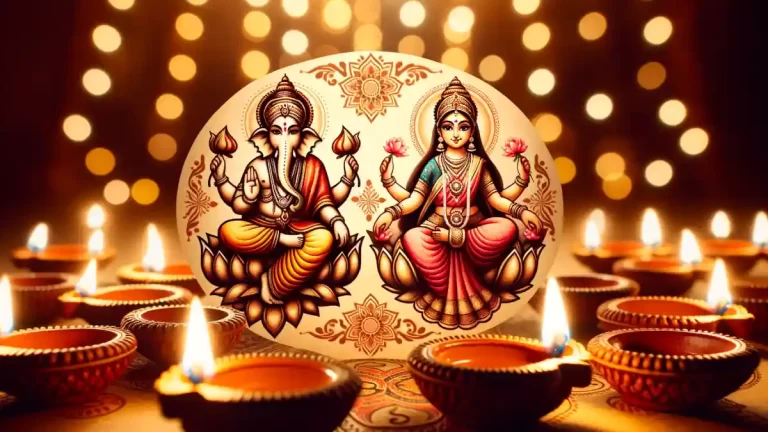Why We Worship Lakshmi-Ganesh on Diwali: Unveiling the Reasons

Discover why Lakshmi and Ganesh are worshipped during Diwali. This blog explains the myths, traditions, and cultural significance of these deities on the festival of lights.
Diwali, the festival of lights, brings with it a whirlwind of emotions—joy, togetherness, and the sheer delight of witnessing our homes and hearts illuminated. But ever wondered why it’s Lakshmi and Ganesh who are the celestial guests of honor during our Diwali Poojas? Let’s delve into the traditions, myths, and meanings that make them so special on this festive day.
Why Lakshmi is the Goddess of the Hour
Diwali is a multifaceted festival, and while North India celebrates the return of Lord Rama to Ayodhya, the focus often shifts to Goddess Lakshmi. Emerging from the cosmic ocean during the churning of the seas, she symbolizes wealth and prosperity. The worship of Lakshmi is thought to bring fortune and well-being into our homes for the coming year.
The Wisdom of Including Ganesh
Lord Ganesh, the remover of obstacles and the god of wisdom, shares the spotlight with Lakshmi on Diwali. The two go hand-in-hand like wisdom and wealth—both crucial elements for holistic prosperity. When you light that diya for Lakshmi, adding one for Ganesh attracts not just material wealth but also the wisdom to manage it.
New Beginnings: More than Just Symbolic
In several parts of India, especially Gujarat and Maharashtra, Diwali is considered the start of a new year. Business communities perform “Chopda Pujan,” sanctifying new account books. This links directly to why Lakshmi, the goddess of wealth, is integral to the Diwali Pooja. It’s like sending an invitation to prosperity for the coming year, both personally and professionally.
A Festival for All: Regional Variations
While North India associates Diwali with the epic Ramayana, other parts of India have their own stories and gods. From Krishna’s defeat of Narakasura in the South to the worship of Kali in Bengal, Diwali takes on different hues across the Indian landscape. Yet, the common thread remains the worship of Lakshmi and Ganesh, making it a truly pan-Indian celebration.
In Conclusion
As you light up your homes this Diwali, remember that each diya carries a legacy of myths, beliefs, and traditions. Lakshmi and Ganesh don’t just represent wealth and wisdom; they symbolize the collective hopes and aspirations of millions. So, when you offer your prayers, know that you’re becoming a part of something much larger than yourself—a continuum of faith that transcends time and space.





प्रातिक्रिया दे